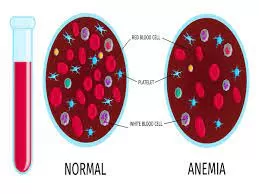
In a groundbreaking revelation, a study published in Nature Medicine has unveiled a shared genetic architecture for problematic alcohol use (PAU) across diverse populations worldwide. This discovery offers a profound insight into the genetic underpinnings of habitual heavy drinking, often leading to detrimental consequences, and stands as a significant milestone in comprehending the root causes of this major health concern.
The study, the largest conducted to date for PAU, involved an examination of over 1 million individuals affected by problematic alcohol use, encompassing various ancestral groups, including European, African, Latin American, East Asian, and South Asian ancestries. This extensive research sought to decipher the genetic landscape of PAU across these diverse populations.
The findings have demonstrated a remarkable revelation: while there are genetic distinctions related to PAU among different populations, there exists a substantial shared genetic foundation across these groups, shedding light on the commonality in the genetic architecture influencing problematic drinking behaviors.
Hang Zhou, Assistant Professor of psychiatry and biomedical informatics at Yale University’s School of Medicine, emphasized the significance of this research in unlocking the molecular mechanisms underlying PAU. Identifying potential gene targets through this study paves the way for future pharmacological studies and the development of treatments to address the consequences of excessive alcohol consumption.
The study’s comprehensive analysis identified 110 gene regions linked to PAU, offering a refined mapping of potential causal variants within each region. Moreover, employing diverse methods, researchers prioritized multiple genes associated with PAU and uncovered links to brain biology through transcriptional-wide association studies in various brain tissues and chromatin interaction analysis, providing critical insights into the biological pathways influenced by these genes.
This groundbreaking work not only presents valuable resources for future functional analysis but also unveils potential avenues for drug development. Notably, the study identified existing medications that hold promise as potential treatments for problematic alcohol use, offering hope for new therapeutic interventions in managing PAU and mitigating its adverse effects on health.










